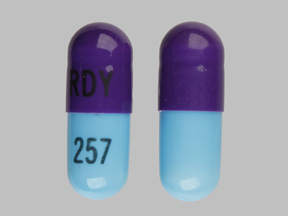Ziprasidone Interactions
There are 738 drugs known to interact with ziprasidone, along with 18 disease interactions, and 4 alcohol/food interactions. Of the total drug interactions, 281 are major, 365 are moderate, and 92 are minor.
- View all 738 medications that may interact with ziprasidone
- View ziprasidone alcohol/food interactions (4)
- View ziprasidone disease interactions (18)
Most frequently checked interactions
View interaction reports for ziprasidone and the medicines listed below.
- Abilify (aripiprazole)
- Adderall (amphetamine / dextroamphetamine)
- Adderall XR (amphetamine / dextroamphetamine)
- Ativan (lorazepam)
- Benadryl (diphenhydramine)
- Cymbalta (duloxetine)
- Fish Oil (omega-3 polyunsaturated fatty acids)
- Klonopin (clonazepam)
- Lamictal (lamotrigine)
- Latuda (lurasidone)
- Lexapro (escitalopram)
- Lithium Carbonate ER (lithium)
- Lyrica (pregabalin)
- Metoprolol Tartrate (metoprolol)
- Prozac (fluoxetine)
- Seroquel (quetiapine)
- Topamax (topiramate)
- Trintellix (vortioxetine)
- Tylenol (acetaminophen)
- Vitamin B12 (cyanocobalamin)
- Vitamin C (ascorbic acid)
- Vitamin D3 (cholecalciferol)
- Vraylar (cariprazine)
- Vyvanse (lisdexamfetamine)
- Wellbutrin (bupropion)
- Wellbutrin XL (bupropion)
- Xanax (alprazolam)
- Zofran (ondansetron)
- Zoloft (sertraline)
- Zyrtec (cetirizine)
Ziprasidone alcohol/food interactions
There are 4 alcohol/food interactions with ziprasidone.
Ziprasidone disease interactions
There are 18 disease interactions with ziprasidone which include:
- dementia
- acute alcohol intoxication
- CNS depression
- NMS
- QT interval prolongation
- aspiration
- seizure
- hematologic abnormalities
- hyperglycemia/diabetes
- hypotension
- lipid alterations
- priapism
- weight gain
- depression
- hyperprolactinemia
- liver disease
- parkinsonism
- tardive dyskinesia
More about ziprasidone
- ziprasidone consumer information
- Compare alternatives
- Pricing & coupons
- Reviews (488)
- Drug images
- Latest FDA alerts (5)
- Side effects
- Dosage information
- During pregnancy
- Drug class: atypical antipsychotics
- Breastfeeding
- En español
Related treatment guides
Drug Interaction Classification
| Highly clinically significant. Avoid combinations; the risk of the interaction outweighs the benefit. | |
| Moderately clinically significant. Usually avoid combinations; use it only under special circumstances. | |
| Minimally clinically significant. Minimize risk; assess risk and consider an alternative drug, take steps to circumvent the interaction risk and/or institute a monitoring plan. | |
| No interaction information available. |
See also:
Further information
Always consult your healthcare provider to ensure the information displayed on this page applies to your personal circumstances.


